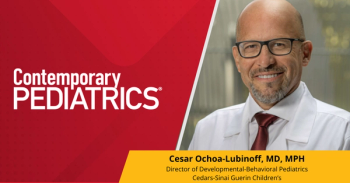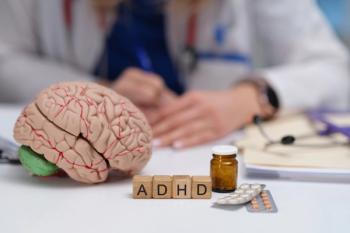
ADHD Treatment Driven by Parents’ Preferences
For children with ADHD, assessing parents’ preferences and goals is useful for clinicians in understanding which treatment parents are likely to initiate for their children.
The preferences and goals of parents of children who have attention-deficit/hyperactivity disorder (ADHD) are associated with the initiation of treatment, according to researchers at The Children's Hospital of Pennsylvania in Philadelphia. Parents with distinct goals selected different treatments in a
Fiks and colleagues recruited 148 parents/guardians of children aged 6 to 12 years who had a diagnosis of ADHD in the previous 18 months and who were not currently receiving combined treatment (medication and behavior therapy [BT]) from 8 primary care sites and an ADHD treatment center. Parents completed the ADHD Preference and Goal Instrument and reported treatment receipt at 6 months. The association of baseline preferences and goals with treatment initiation was analyzed with the use of logistic regression, and the change in preferences and goals over 6 months for children who initiated treatment versus others was compared with linear regression.
Baseline medication and BT preference were associated with treatment initiation (odds ratios, 2.6 and 2.2, respectively). The goal of academic achievement was associated with medication initiation, and the goal of behavioral compliance with initiation of BT. At 6 months, parents whose children initiated medication or BT compared with others had decreased academic and behavioral goals, suggesting that their goals were attained. Only those initiating BT had diminished interpersonal relationship goals.
The authors noted that assessing parents’ preferences and goals, as prioritized in the American Academy of Pediatrics (AAP) ADHD
The AAP first published clinical recommendations for the diagnosis and evaluation of ADHD in children in 2000; recommendations for treatment followed in 2001. Key action statements, published in 2011, include the following:
• The primary care clinician should initiate an evaluation for ADHD for any child 4 through 18 years of age who presents with academic or behavioral problems and symptoms of inattention, hyperactivity, or impulsivity.
• To make a diagnosis of ADHD, the primary care clinician should determine that Diagnostic and Statistical Manual of Mental Disorders, Fourth Edition criteria have been met; information should be obtained primarily from reports from parents or guardians, teachers, and other school and mental health clinicians involved in the child’s care.
• In the evaluation of a child for ADHD, the primary care clinician should include assessment for other conditions that might coexist with ADHD, including emotional or behavioral, developmental, and physical conditions.
• The primary care clinician should recognize ADHD as a chronic condition and, therefore, consider children and adolescents with ADHD as children and youth with special health care needs. Management of children and youth with special health care needs should follow the principles of the chronic care model and the medical home.
The study authors also noted that their findings support a process of shared decision making as a strategy to pair parents and children with the treatment they are likely to begin so that they can achieve goals that are salient for the family.
Newsletter
Access practical, evidence-based guidance to support better care for our youngest patients. Join our email list for the latest clinical updates.








